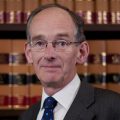
The use of unregulated experts in children’s family court cases is to be curbed, following concerns about their use in cases involving so-called “parental alienation”.
The courts would not be able to permit the instruction of an expert who was not regulated or on an accredited register other than in exceptional circumstances, under a proposed change to the Family Procedure Rules, which govern children’s court proceedings.
The proposal has been issued for consultation by rule-setting body the Family Procedure Rule Committee, which said that “experts, often using the title psychologist, may be instructed to give evidence or offer diagnoses which they are not qualified to undertake”.
The proposed change responds to concerns from campaigners and the judiciary about the instruction of unregulated psychologists to give expert evidence on so-called “parental alienation”.
The concept refers to a child’s reluctance, resistance or refusal to spend time with a parent due to their alleged manipulation by the other parent.
Parental alienation ‘discredited’ as diagnosable syndrome
The idea of parental alienation as a diagnosable syndrome is discredited and has no evidential basis, said guidance for practitioners issued last year by the Family Justice Council (FJC), which comprises senior judges and family court practitioners and oversees the system.
However, parents are increasingly making claims of parental alienation in private law cases, often in response to allegations of domestic abuse by the other parent, with concerns that it can be a tool of coercive control, said the guidance.
The FJC said the courts should assess whether a parent has engaged in “alienating behaviours” that have led to the child’s resistance to seeing the other parent, with the child’s feelings not being a response the latter parent’s actions, including perpetrating domestic abuse, or due to attachment issues.
It added that it was “inappropriate” for experts to be called to give fact-finding evidence of whether alienating behaviours had occurred, though it may be necessary to instruct a psychologist to help the court determine the welfare outcome for the child.
Professional regulation of psychologists
The Health and Care Professions Council (HCPC) regulates clinical, counselling, forensic, health, educational, occupational and sports and exercise psychologists, each of which is a title protected by law, as are the umbrella terms for these groups: ‘practitioner’ and ‘registered’ psychologists.
Separately, professional body the British Psychological Society (BPS) accredits practitioners with specified academic qualifications as “chartered psychologists”, a title which is also legally restricted.
However, the term “psychologist” is not legally protected, meaning that “both fully qualified and experienced psychologists and people who are not qualified in psychology at all can legitimately refer to themselves as any kind of psychologist”, according to the BPS.
It has said that a series of other titles – assessment, child, criminal, developmental, expert, consultant or graduate psychologist – are in use, despite having “no specific meaning in applied psychology or psychological practice”.
‘Lack of proper checks from professional body’ on some experts
Currently, the Family Procedure Rules state that expert witnesses must comply with eleven standards, including that they must be registered if their practice is regulated. If they are not in a regulated profession, they “should demonstrate appropriate qualifications and/ or registration with a relevant professional body on a case by case basis”.
However, there is no requirement to join a professional association that oversees compliance with minimum qualification standards and continuous professional development, said the Family Procedure Rule Committee.
“As a result, the current process allows for the instruction of unregulated experts whose lack of regulation does not provide parties a proper route to raise concerns over an expert’s conduct,” the committee said.
“This can lead to an uneven situation, where the standard of expert evidence varies depending on whether or not the expert instructed is subject to proper checks from a professional body.”
Curbing use of unregulated experts
The committee has proposed a rule change that would require expert witnesses in children’s family court cases to be “regulated experts”. This would mean they were regulated by a UK statutory body, such as the HCPC, were a health or care professional on a register accredited by the Professional Standards Authority (PSA) or were a legal practitioner regulated by an approved regulator under the Legal Services Act 2007.
The PSA accredits a number of non-statutory registers, based on them having met a set of quality standards, with several of these covering counselling, therapy or psychology.
There would not be a blanket ban on the courts appointing experts who were not regulated or registered, with proposed exceptions for international social workers, cases where no regulated expert was available and circumstances where the issue in question may only be resolved by the evidence of an expert who was not regulated.
The consultation runs until 6 June 2025.






 Bournemouth, Christchurch and Poole
Bournemouth, Christchurch and Poole  Hampshire County Council
Hampshire County Council  Oxfordshire County Council
Oxfordshire County Council  South Gloucestershire Council
South Gloucestershire Council  Wokingham Borough Council
Wokingham Borough Council  Webinar: building a practice framework with the influence of practitioner voice
Webinar: building a practice framework with the influence of practitioner voice  ‘They don’t have to retell their story’: building long-lasting relationships with children and young people
‘They don’t have to retell their story’: building long-lasting relationships with children and young people  Podcast: returning to social work after becoming a first-time parent
Podcast: returning to social work after becoming a first-time parent  How managers are inspiring social workers to progress in their careers
How managers are inspiring social workers to progress in their careers  Workforce Insights – showcasing a selection of the sector’s top recruiters
Workforce Insights – showcasing a selection of the sector’s top recruiters 

 Facebook
Facebook X
X LinkedIn
LinkedIn Instagram
Instagram
This happened with me, my ex said things to our son that was very disturbing and worrying about me and my family. I had a social worker involved at the time due to physical health issues and in the meetings my ex would say he worried about my mental ability to meet our sons needs our son is currently 14 years old. Long and short of it I was assessed thanks to social 9 times for mental health by 9 different specialists. The social worker favoured my ex and my ex was awarded residential. No follow up from social services to see how their handiwork has impacted my son and I have 2 other children from a different relationship who live with me. Our family has been torn apart and my son who was a high achiever has now been told he’s expected is 1s and 2s in GCSEs which means he’s failed.